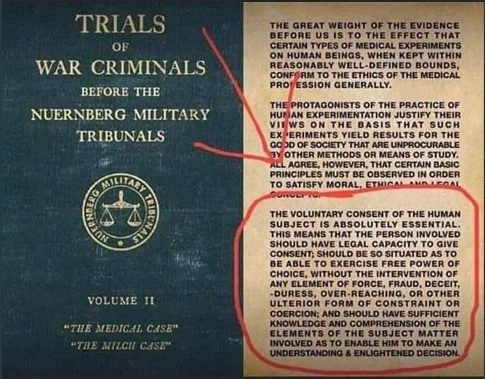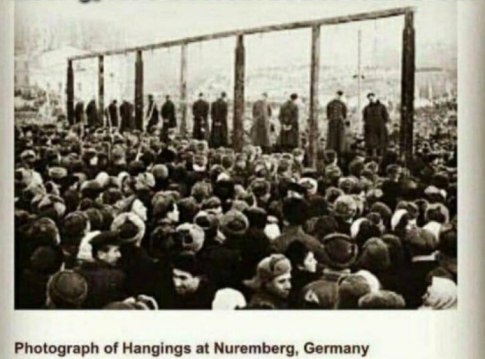– University’s COVID-19 Vaccine Mandate Violates US Constitution: Court:
Authored by Zachary Stieber via The Epoch Times (emphasis ours),
A Colorado university’s COVID-19 vaccine mandate violates the U.S. Constitution, a federal court has ruled.
The Sept. 1, 2021, mandate “clearly violates the Establishment Clause and the Free Exercise Clause as interpreted by our precedents,” a majority of a U.S. Court of Appeals for the 10th Circuit said in the May 7 decision.
While the mandate was later updated, the newer version also violates the Constitution, the judges said.
The University of Colorado Anschutz Medical Campus in 2021 required COVID-19 vaccination of all students and employees. It initially offered religious exemptions to anyone who checked a box, but later said administrators would “only recognize religious exemptions based on religious beliefs whose teachings are opposed to all immunizations.”
Officials, for instance, said that Christian Scientists would qualify for an exemption but Buddhists would not.
They also said that exemptions would only be granted to people who never received any vaccinations.
Medical exemptions, on the other hand, were available if a doctor said the prospective recipient’s health or life would be endangered.
Seventeen students and employees, all of whose applications were denied, sued over the policy, alleging it was discriminatory.
U.S. District Judge Raymond Moore, an appointee of former President Barack Obama, in 2022 ruled that the plaintiffs did not show they would suffer irreparable harm absent a stay of the initial mandate, and that they had not met the burden of showing the updated mandate was not neutral.
The case against the Sept. 1 mandate also became moot because the requirements were updated, the judge said.
That ruling was wrong, according to the appeals court, in part because the initial mandate was used to fire two employee plaintiffs and Judge Moore placed the burden regarding mootness on the plaintiffs.
Under the Sept. 1 policy, Anschutz administrators “rejected applicants’ beliefs based not on their sincerity, but rather on their perceived validity,” according to the new ruling. Even after receiving numerous pages of explanations of religious beliefs, each application was denied. Administrators rejected one application because officials claimed that it was “morally acceptable” for Catholics to receive COVID-19 vaccines, judging any position otherwise as personal objections as opposed to religious ones.
The policy was “explicitly non-neutral” since, according to a ruling in a separate case, the First Amendment does not allow governments to “discriminate in favor of some religions and against others,” the majority said.
Policies that infringe on constitutional rights can survive under “strict scrutiny” if officials can prove they are justified by a “compelling state interest” and were “narrowly tailored in pursuit of that interest.” Anschutz said it was motivated by a desire to stem the spread of COVID-19, but “has not even attempted to explain why its interest is served by granting exemptions to practitioners of some religions, but not others,” according to the panel.
The Sept. 24, 2021, policy was a purported update that was said to assess whether religious exemption requests were “made based on a sincerely-held religious belief” but evaluations conducted under that policy reached the same results, indicating the updated version “was a mere pretext to continue the Administration’s September 1 Policy,” the majority said. It said the updated version also failed the strict scrutiny test because it has a lower bar for medical exemptions than religious exemptions.
U.S. Circuit Judge Allison Eid, an appointee of former President Donald Trump, authored the opinion. She was joined by Circuit Judge Jerome Holmes, who was appointed by former President George W. Bush.
Circuit Judge David Ebel, an appointee of former President Ronald Reagan, in a partial concurrence and dissent, said he agreed the Sept. 1 policy likely violated the First Amendment but that the Sept. 24 version fixed the constitutional issues.
“The September 24 mandate is neutral toward religion and generally applicable,” he said.
Defendants in the case included the University of Colorado’s Board of Regents and officials at the University of Colorado Anschutz School of Medicine.
The board and the school did not respond to requests for comment.
The appeal was brought by the Thomas More Society on behalf of the students and employees.
“The University of Colorado ran roughshod overstaff and students of faith during COVID, and the court of appeals has now declared plainly what we’ve fought to establish for almost three years: the university acted with ‘religious animus’ and flagrantly violated the fundamental religious liberties of these brave healthcare providers and students,” Peter Breen, executive president of the society, said in a statement.
“The court of appeals correctly ruled,” he added later, “that no government entity has the right to appoint itself as a doctrinal tribunal that defines which religious beliefs count as deeply and sincerely held and deem those religious beliefs valid or invalid.”
***

